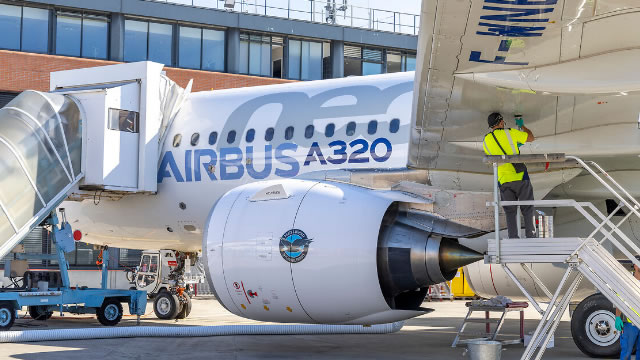Airbus Supply Chain Disruptions: A Senior Executive’s Perspective
The global aviation industry has been facing numerous challenges over the past few years, with supply chain disruptions being one of the most significant issues. These disruptions have led to delays in aircraft deliveries for major manufacturers like Airbus. However, according to a senior executive at the company, the situation is improving, and Airbus is making strides in managing these disruptions more effectively.
The Impact of Supply Chain Disruptions on Aircraft Deliveries
Airbus, like many other manufacturers, has experienced its fair share of supply chain disruptions in recent times. These disruptions have been caused by various factors, including the COVID-19 pandemic, geopolitical tensions, and natural disasters. The ripple effect of these disruptions has been felt throughout the aviation industry, with airlines and passengers bearing the brunt of the delays.
The senior executive acknowledged that the disruptions have caused significant challenges for Airbus, resulting in delays for some customers. However, they were quick to point out that the situation is improving. The company has implemented various measures to mitigate the impact of these disruptions, including working closely with suppliers to optimize production and logistics.
Airbus’ Approach to Managing Supply Chain Disruptions
Airbus has taken a proactive approach to managing supply chain disruptions. The company has built up a significant buffer stock of parts and components to help mitigate the impact of any disruptions. They have also invested in digital tools and technologies to improve their supply chain visibility and agility.
Moreover, Airbus has been working closely with its suppliers to optimize production and logistics. This includes collaborating on the design and development of new components to reduce lead times and improve efficiency. The company has also been investing in new manufacturing technologies, such as 3D printing, to reduce reliance on traditional supply chains.
The Effects on Consumers and the World
The improvement in Airbus’ ability to manage supply chain disruptions is good news for consumers and the aviation industry as a whole. With fewer delays in aircraft deliveries, airlines can plan their fleets more effectively, leading to improved schedules and better customer experiences.
Furthermore, the reduction in supply chain disruptions is a positive sign for the global economy. The aviation industry is a significant contributor to economic growth, and any disruptions can have far-reaching consequences. By improving its supply chain management, Airbus is helping to ensure that the industry can continue to drive economic growth and support jobs around the world.
Conclusion
The supply chain disruptions that have led to delays in aircraft deliveries for Airbus are lessening, and the company is getting better at managing them. This is good news for consumers and the aviation industry as a whole. With fewer disruptions, airlines can plan their fleets more effectively, leading to improved schedules and better customer experiences. Furthermore, the reduction in supply chain disruptions is a positive sign for the global economy, as the aviation industry continues to drive economic growth and support jobs around the world.
- Airbus has experienced significant supply chain disruptions in recent times, leading to delays in aircraft deliveries.
- The senior executive at Airbus acknowledged the challenges but highlighted that the situation is improving.
- Airbus has implemented various measures to mitigate the impact of supply chain disruptions, including building up a buffer stock of parts and components and investing in digital tools and technologies.
- The reduction in supply chain disruptions is good news for consumers and the aviation industry as a whole, as airlines can plan their fleets more effectively and improve customer experiences.
- Furthermore, the reduction in supply chain disruptions is a positive sign for the global economy, as the aviation industry continues to drive economic growth and support jobs around the world.





